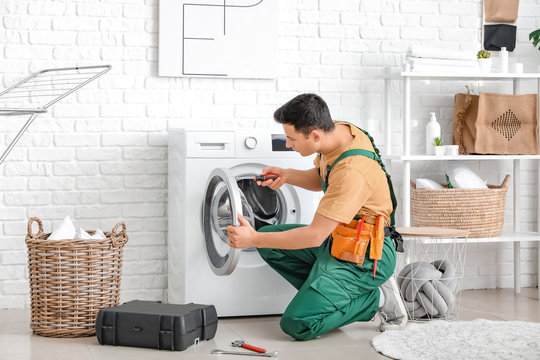When it comes to technical issues with washing machines and refrigerators, there can be a variety of problems that users may encounter. Here’s an overview of some common technical issues for both appliances:
Washing Machine Technical Issues:
- Won’t Start: If the washing machine doesn’t start at all, it could be due to issues with the power supply, door latch, or electronic controls.
- No Water Intake: If the washing machine isn’t filling with water, it could be due to a malfunctioning inlet valve, clogged filters, or issues with the water supply.
- Drainage Problems: If the washing machine is not draining properly, it could be due to a clogged drain hose, filter, or pump. There may also be issues with the drain pump itself.
- Spin Cycle Issues: Problems during the spin cycle could be caused by unbalanced loads, issues with the drive belt, motor, or other mechanical components.
- Loud Noise: Unusual noises during operation could indicate problems with bearings, belts, or other mechanical parts.

Refrigerator Technical Issues:
- Not Cooling: If the refrigerator is not cooling properly, it could be due to issues with the compressor, evaporator fan, condenser coils, or refrigerant levels.
- Excessive Frost: Excessive frost buildup in the freezer could be caused by a faulty defrost heater, defrost thermostat, or defrost timer.
- Water Leakage: Water leaks inside or outside the refrigerator could be due to issues with the water supply line, drain pan, or drain tube.
- Ice Maker Problems: Issues with the ice maker may include failure to produce ice, producing small or misshapen ice cubes, or leaking water.
- Faulty Door Seals: Damaged or worn door seals can cause air leaks, leading to inefficient cooling and frost buildup.
In both cases, troubleshooting and repairing technical issues with washing machines and refrigerators often require a good understanding of the appliance’s components and systems. Depending on the complexity of the problem, it may be necessary to seek assistance from a qualified appliance repair technician. It’s important to follow safety precautions and, if unsure, consult the appliance’s manual or contact the manufacturer for guidance.
